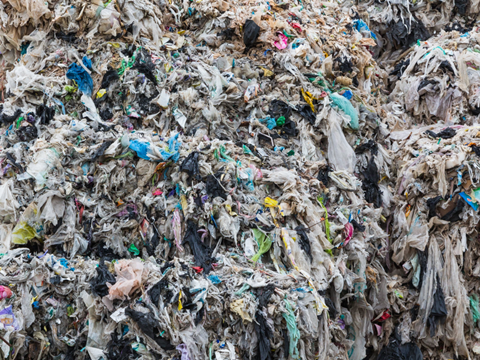
Words like ‘crisis’ and ‘breaking point’ are increasingly used to describe the European recycling industry, but are we past the point of no return? We seek to answer the question by taking a bird’s eye view of the issues at hand.
In the midst of an economic recession across the continent, operational costs remain high. Plastics Recyclers Europe has criticized the “excessive red tape” recyclers face in obtaining and renewing permits, alongside soaring input waste and energy costs – especially where clean energy is concerned.
Companies in the packaging space have already raised concerns that the EU’s Clean Industrial Deal, designed in part to bring energy prices down, could offer preferential treatment to certain industries over others.
Recycled materials are also more expensive than their virgin counterparts, which has been attributed to the ‘unfair economic advantage’ of fossil fuel subsidies. Manufacturers may be unwilling or unable to pay extra if they already struggle under the weight of production costs, especially as demand continues to rise.
Apparently, the number of companies forced to close their doors doubled between 2023 and 2024. By the end of this year, further closures are expected to amount to almost one million tonnes of recycling capacity lost since 2023; this is reported to be a close match to the total decrease in capacity throughout 2024, and triple the decline in the previous year.
Forecasts also suggest that the industry will face net zero growth this year, which Plastics Recyclers Europe describes as a ‘critical decline in momentum’. Chemical recycling, previously uplifted as part of the solution, is growing at a slower rate than expected; it is now expected to fall below 50% of its projected capacity and struggle to reach its 3 million-tonne target by 2030.
This trend is stirring up fears that there will be no viable recyclers remaining by the time the Packaging and Packaging Waste Regulation’s recycling deadlines arrive, which would leave the continent reliant on ‘underpriced’ imports and virgin plastics.
Even this is a concern, as imported materials – believed to constitute over 20% of the EU’s current polymer consumption – are coming at the expense of domestic production. While consumption continues to rise, production for most polymers is believed to have decreased by 5% across the continent, and overall plastic production is set to fall below levels last recorded in 2000.
Failing to implement a circular economy within Europe itself would require companies to import materials, which would inevitably have further environmental implications – increases in transport-related carbon emissions, for example, or further contributions to plastic waste ending up in the ocean. Even a greater reliance on local, readily available resources like paper come with their own trade-offs, such as carbon footprint fluctuations and an increase in deforestation.
Differences between the EU’s standards for recyclate and those in other regions have called the quality of imported materials into question. Shortcomings in transparency can run the risk of fraudulent claims, and if companies are deceived into buying materials with less recycled content, they may inadvertently contribute to the continent falling short of its circular economy targets. Discrepancies in quality and safety could also threaten the trust or health of European consumers.
Obviously, the inability to recycle domestic waste may correspond with a buildup of pollution, whether through the necessity for incineration and landfills, or else the amount of waste escaping into the environment. Despite waste exports from the EU increasing by 36% between 2022 and 2024, the EU Waste Shipment Regulation has placed restrictions on European companies.
The law now requires non-OECD countries to inform the European Commission that they are willing to receive, and can sustainably manage, imported EU waste. Receiving facilities are also expected to undergo an independent audit to prove they can handle the waste responsibly.
While this may be considered a step forward in undoing ongoing patterns of environmental racism, EuRIC feels that the Regulation’s deadline should be postponed. In its view, EU Member States may struggle to meet the legal deadlines, while the required administration work and ‘unclear’ communication of the law’s expectations could burden non-OECD countries further; this could then jeopardize trade relationships and further destabilize recycling markets, causing additional disruption in the European industry.
The enforcement of other interventions is also deemed to be insufficient. Edward Kosior, CEO and founder of Nextek Ltd, told Packaging Europe that a ‘total lack of action by European politicians’ in levying non-compliance penalties means that existing legislative developments have turned out to be pointless.
“We need to see a major shift in the EU Commission’s mindset from the current advisory approach to full, hands-on action,” he said. “This means going beyond setting targets to actively supporting investment in the infrastructure required for the plastics recycling industry and the EU Commission to achieve its Clean Industrial Deal goals.”
Plastics Recyclers Europe adds that continent-wide capacities would need to at least double by 2030 in order to reach the goals and targets introduced in recent EU legislation, and doubts that such an outcome is viable. It urges the EU to “act now and create a genuine circular single market” in the face of an “uncertain” future for European plastics recycling.
Joining the call are Searious Business, Maastricht University, and TOMRA, among other signatories of an ongoing campaign to address the ‘broken economics’ of Europe’s recycling industry. A symbolic Elephant High Striker will tour exhibition stands at this year’s K-Messe in Düsseldorf, where participants will be encouraged to ring a real bell and join the movement.
If you liked this story, you might also enjoy:
The ultimate guide to the Packaging and Packaging Waste Regulation in 2025
How are the top brands progressing on packaging sustainability?
Everything you need to know about global packaging sustainability regulation in 2025
The key to increasing the use of reusable packaging in supermarkets














No comments yet